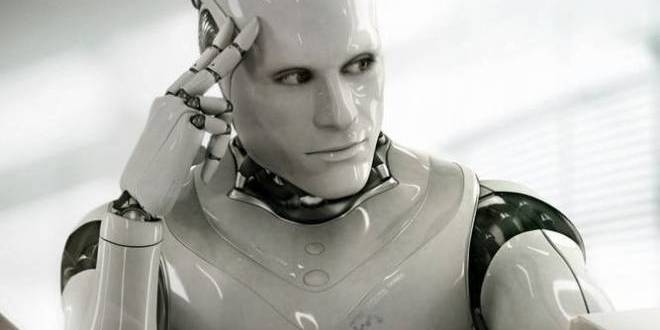Commentary
European Parliament: No to basic income, yes to rules for robots
Parliamentarians accepted a report detailing a legal framework for the taxation and regulation of automated systems, like self-driving cars and robotic production. But they refused to pass income protection to flesh and blood workers.

At its plenary session held in Strasbourg last Thursday, the European Parliament rejected universal basic income as a compensatory measure for unemployment in the tech sector caused by the use of robots and automation in the labor market. This measure was to be financed with a “tax on robots” paid by the companies that use them in production. Three hundred twenty-eight MEPs from liberal and conservative groups (EPP, ALDE and ERC) voted against it, and 286 (socialists, GUE and others) voted in favor.
On the other hand, a large majority — 396 votes in favor, 123 against and 85 abstentions — voted to accept a report issued by the European Commission. Not legally binding, it recommends the adoption of certain rules on the emerging field of artificial intelligence and advanced robotics: tort, criminal and economic liabilities of the robots and a study on the effects of automation on employment. The parliamentarians also asked to consider the possibility of creating a European agency for robotics and artificial intelligence.
In the resolution proposed by the Luxembourg Socialist MEP Mady Delvaux, which was approved by the majority, the Parliament also sought a draft law to create a mandatory insurance system and a supplementary fund to ensure full compensation for victims of accidents caused by autonomous cars.
The Google car has had 14 accidents in six years of trials in the U.S. In July 2016, there were the first casualties in an accident of an autonomous vehicle. Only when no more cars are driven by humans, the Google car will be perfect. The program is vast, futuristic and, no doubt, in Europe road tests are, to say the least, premature. Not to mention that the vote on Thursday is inconsistent with the resolution adopted by the European Parliament on Jan. 19, which established the urgent need for action against poverty and inequality through the construction of a “European pillar of social rights” which includes the “minimum guaranteed income.” In the meantime, it is clear that one of the effects produced by automation is the generation of new temporary positions, which are paid a pittance and do not offer any protection.
Delvaux outlined the legal reality that awaits us in the next 15 years. There is the need to regulate the tools of automation capable of self-learning in the automotive, industrial, entertainment, agriculture and health sectors. She has proposed a legal status for robots, an “e-personality” that does not provide them the legal category of a human person but as a private and commercial entity (“corporate personality”). These are useful concepts to identify the liability in case of damages to third parties and to attribute them to the owners of the technology, the platform or the algorithm.
Protection of individuals and their dignity through guaranteed income, defining owners’ liability for the effects of their machines on humans and the environment, and taxes on robots — in essence, this is the proposal of French presidential candidate Benoît Hamon, the unknown socialist who crushed Valls’ liberal right in the primaries. His proposal is based on a dual platform of universal basic income (but only for those under 25) and taxes on robots.
It follows the mold of Delvaux’s paper on “civil law on robotics” that inspired her resolution. By separating the issue of basic income (rejected) from the issues of automation, the parliament vote makes explicit the dominant culture in digital capitalism. Robots are given priority while the workforce is considered invisible and undeserving of a necessarily different legal status from that of the machines and businesses.The fetish of technology takes primacy over human flesh and reason. The market will take care of everything else.
False.
Delvaux said she was “pleased the portion on robotics was approved, but I regret that the right-wing coalition has refused to consider the possible negative consequences on the labor market. The coalition has refused a forward-looking debate, ignoring the concerns of our citizens.” Her reaction is understandable.
Thilo Brodtmann, executive director of the German Machine Tool Builders’ Association, only helped to confuse the issue. “It’s a mistake to humanize the robots. We’re not talking about Star Wars or Terminator,” he said, misunderstanding the meaning of the report. “In a couple of years, we will need a European policy framework because robots are the core of the industry 4.0.”
“Industry 4.0” refers to the IT reorganization of manufacturing production promoted by German multinationals and adopted with enthusiasm by nerds. Italy’s Renzi (and now Gentiloni) government has pumped billions of public funds to businesses for this purpose. Here as well, the efficiency of machines is more important than the dignity of the work force.
The battle is just beginning.
Originally published at https://ilmanifesto.it/europarlamento-no-al-reddito-di-base-si-alle-norme-sui-robot/ on 2017-02-18
